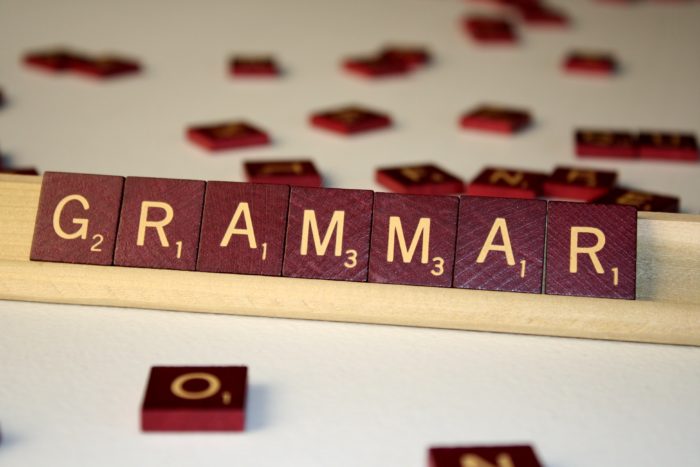To PC or Not PC
Let’s talk about grammar.
Wait! Come back! This will be interesting, I promise. It will involve politics and controversy and barely any pop quizzes. Politics and grammar meet – let’s say clash, because I did promise controversy – in the question of pronouns. There’s an old convention in English that, when the sex of a person is unspecified, he is referred to by the male pronoun. This is probably related to the old use of “Man” as a term for all humanity: The male stands in for all.
Not surprisingly, the classic rule of he has fallen out of repute and use. Several new conventions are now fighting for the privilege of replacing it. It’s too early to project a winner, because like Tolstoy’s unhappy families, they’re all flawed in different ways. As speakers and writers of the English language, let’s consider our options.
(Pop quiz: What is a conjunction?)
Some people replace the lone he with the phrase he or she. The benefit of this formulation is that it is inclusive and all-encompassing. The downside is that it’s clunky. He or she has cluttered up many sentences with verbiage that serves no purpose beyond not being politically incorrect. The phrase has produced its own variants: he/she and, better yet, s/he. These updated versions are sleeker and more refined, but severely limited in that they are suited only for the written word. No one could speak them and still appear normal.
(Pop quiz: What is a subjective clause?)
Another common solution is to use the pronoun they in place of he. The clear advantage of this is that it avoids the clunkiness of he or she, and the android weirdness of s slash he. Unfortunately, it is also grammatically incorrect. If they were correct, it would already be used. To replace the singular he with the plural they brings the pronoun into conflict with its noun (or indefinite pronoun, which is functionally the same thing). You could say that everyone has their own opinions, but this is true only of Gollum. Everyone else has his own opinions.
Perhaps the most unique answer to this grammatical quandary comes from Charles Murray, who advocates that female writers use a generic she and male writers use a generic he. This is ingenuous and posseses certain aesthetic qualities of balance and symmetry. If it had been invented by Chaucer, it might have caught on. Such innovations are much more difficult at the language’s current stage of evolution, however, and to decide the use of the pronoun by the sex of the author can rub oddly.
(Pop quiz: What is a dental fricative?)
Now we come, at last, to the final and best solution. Some writers replace he with she – a solution that maintains elegance, simplicity, and grammatical precision. It avoids the pitfalls of other solutions but skirts on the brink of its own: Is the use of this pronoun merely political, bowing to the pressure of those who have taken it into their heads to be offended by he (and just about everything else)? Taking the question as a literary one, the classic he and the modern she are the best answers. But the question is always in danger of becoming political: He or she, to PC or not PC?
How do you grapple with the dilemma in your own literary wanderings? Remember, there is no right answer. But there are several wrong ones.
(ANSWER KEY:
- The concomitance of two or more events.
- The North Pole’s darkest secret.
- A clear violation of the Geneva Convention.)








































Singular “they” has existed since Jane Austen and/or Shakespeare. The only reason it isn’t considered grammatically correct is because back in Ye Olde Day they mushed grammatical rules for Latin onto English to make it seem more legit. That’s also why you supposedly can’t begin a sentence with a preposition (but we do all the time).
Singular “they” is the simplest and also already integrated into the common lexicon. I think it wins by default.
The notion of not starting a sentence with a conjunction is not a grammar rule. It’s something fourth grade teachers introduce to help students avoid fragments in place of sentences.
Whenever grammarians got a hold of English, they determined that agreement in number was the governing factor. If we want to change it today, we can. There’s nothing sacred about grammar.
Becky
According to the Wikipedia article on “singular they”, it’s been used since the 14th century, and there are no recorded complaints about it being ungrammatical before the 18th century.
If anyone has a copy of the King James Bible, I encourage them to look up Philippians 2:3!
Fun article, Shannon. Beyond interesting to entertaining!
Becky
My brother, who does a lot of academic writing, alternates pronouns between “he” and “she” when referring to hypothetical people. It works quite well, but I personally find “they” and “their” to be less distracting overall.
I’m in favor of using “they” if we’ve got to replace the non-specific ‘he’. But if we don’t…
What frustrates me? When an author used the ‘singular they’ in a sentence or paragraph where a female is talking/thinking/being discussed or referred to. [oops! Grammatical error: do not end a sentence with a preposition. What, are you German or something?? .?] I have more comments in many of my Kindle books because of that kind of thing!! Gotta take out my frustrations somewhere.
I approach this differently depending on what I am writing. I try not to use singular ‘they’ because there are times when it just sounds weird, like I’m suddenly jumping from singular to plural wording in the same sentence. I hate specifying ‘he or she’ every time because it is extra typing and sounds clunky, and I really don’t feel like people should be growling at me if I decide to only use one pronoun in a sentence. In instances where I am, say, writing an essay and making a lot of general, theoretical examples, I may alternate between pronouns. In one example, for instance, I might use singular female pronouns, then in the next example I might use singular male ones.
Usually, though, I dodge the issue altogether by making my words general and plural. So instead of saying something like ‘When a person writes, it is best that he…’ I will instead say something like ‘When people write, it is best that they…’ This keeps the political correctness out, while being inclusive and in many cases more concise. I find that consistently making most of my writing plural like this makes it easier to keep grammar consistent and correct without offending anyone.
When it comes down to pronouns and characters, I write them based off culture, upbringing, personality, etc. I have some characters of species that naturally have no sex and gender at all, and many of them really don’t care what pronouns others assign to them because they don’t live in a society that ever argued about pronouns. A few of them will care, but usually only because they got used to the pronoun their close friends always called them, or if they can tell someone is trying to annoy them somehow.
How such characters think of themselves would also depend on their personality and life experiences, so I try to write that realistically, instead of PCish or only based off a single social convention in that world. I have some genderless chars that grew up being called ‘he’ for as long as they remember, so even though they don’t truly see themselves as either gender, genderless chars in that situation would probably say ‘he’ if asked what pronoun they prefer, yet they probably wouldn’t get angry at being called a she, either.
In general, if people want to experiment with different types of pronouns or use ‘they’ instead, I generally don’t care as long as they don’t try to force/manipulate/get angry at people for not knowing/using those conventions all the time.